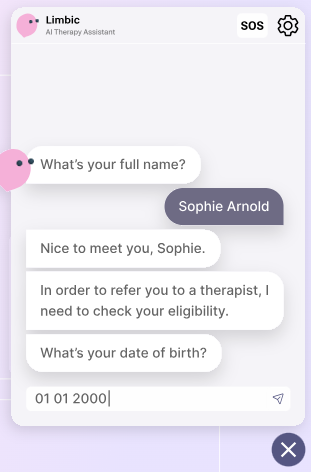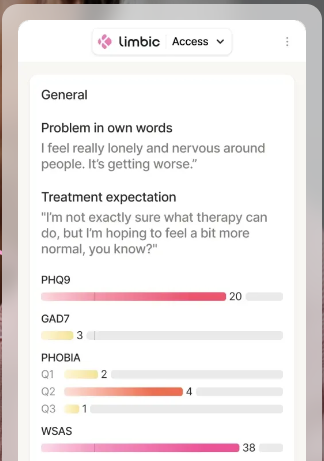Large Language Models (LLMs): Is this AI?
Data Science team, Strategy Unit
Oct 10, 2024
Generative AI ✨
- Creates new content
- Trained on lots of examples
- Can mimic creativity
Modalities 🖼️
- Images (e.g. DALL-E)
- Audio/video (e.g. inVideo AI)
- Text (e.g. ChatGPT)

Text 🔤
- Spam filters
- Sentiment
- Topic detection
- Word prediction
- …
Large Language Models (LLMs) 🦜
- A (fancy?) parrot
- Learns from lots of text
- Predicts next word

In healthcare 🏥
- Organise medical documents
- Drug discovery research
- Chatbots
- …
IRL models 🤖
Case study 🧠
- NHS: chatbot for mental health referrals
- Used Limbic ‘Access’ ‘e-triage’ chatbot
- According to Limbic:
‘Nearly 40% of NHS Talking Therapies already trust Limbic to improve their services’
Case study 🧠
Patient

Clinician

- From the NHS-E Transformation Directorate write-up:
- ~99% of patients that left feedback said that Limbic was helpful
- the service has seen a 30% increase in referrals and initial evidence indicates that Limbic improved out of hours access
- on a pro-rata basis, a saving of 3000 hours (4 psychological wellbeing practitioners)
- nearly 20% of referrals were identified as ineligible and signposted to a more appropriate service
But… ⚠️
The effect of using a large language model to respond to patient messages (The Lancet)
…raises the question of the extent to which LLM assistance is decision support versus LLM-based decision making
…a minority of LLM drafts, if left unedited, could lead to severe harm or death
Pros ➕
- For providers: could reduce pressure
- For users: increases service accessibility
- Can be trained for domain specificity
Cons ➖
- Ethical issues, like:
- bias
- computational cost
- data origins
- privacy
- Not human
- It lies
Consider 🤔
- Are there legal issues?
- Have you considered user needs?
- Should you follow policies (e.g. HM gov, NHS, trust)?
To ponder ❓
- Is this AI?
- Are LLMs an appropriate tool in healthcare?
- How might you feel interacting with an LLM-driven service?
- How can we protect patient privacy?
- How do we deal with LLMs as tools for decision support vs decision making?
- Who is responsible for errors, or even death?
Further reading 📚
- NHS Knowledge and Library Services: AI
- 3 Blue 1 Brown (YouTube)
- Computerphile (YouTube)
- GOV.UK chatbot experiment
view slides at the-strategy-unit.github.io/data_science/presentations